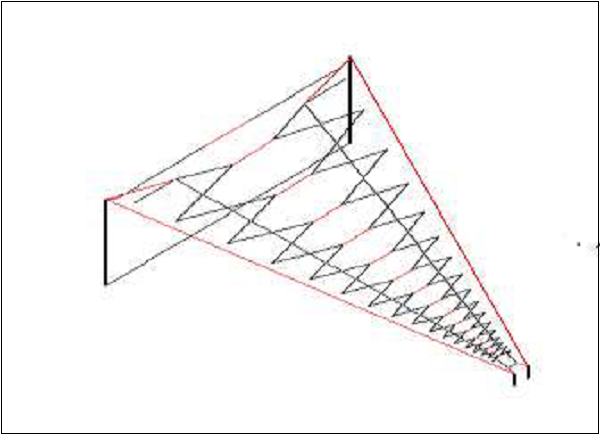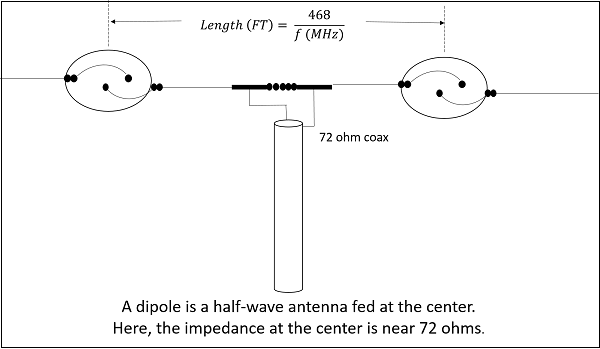Wire antennas are the basic types of antennas. These are well known and widely used antennas. To have a better idea of these wire antennas, first let us have a look at the transmission lines.
Transmission Lines
The wire or the transmission line has some power, which travels from one end to the other end. If both the ends of transmission line are connected to circuits, then the information will be transmitted or received using this wire between these two circuits.
If one end of this wire is not connected, then the power in it tries to escape. This leads to wireless communication. If one end of the wire is bent, then the energy tries to escape from the transmission line, more effectively than before. This purposeful escape is known as Radiation.

For the radiation to take place effectively, the impedance of the open end of the transmission line should match with the impedance of the free-space. Consider a transmission line of a quarter-wave length size. The far end of it is kept open and bent to provide high impedance. This acts as a half-wave dipole antenna. Already, it has low impedance at one end of the transmission line. The open end, which has high impedance, matches with the impedance of free space to provide better radiation.
Dipole
The radiation of energy when done through such a bent wire, the end of such transmission line is termed as dipole or dipole antenna.
The reactance of the input impedance is a function of the radius and length of the dipole. The smaller the radius, the larger the amplitude of the reactance. It is proportional to the wavelength. Hence, the length and radius of the dipole should also be taken into consideration. Normally, its impedance is around 72Ω.
This is better understood with the help of the following figure.

The figure shows the circuit diagram of a normal dipole connected to a transmission line. The current for a dipole is maximum at the center and minimum at its ends. The voltage is minimum at its center and maximum at its ends.
The types of wire antennas include Half-wave dipole, Half-wave folded dipole, Full-wave dipole, Short dipole, and Infinitesimal dipole. All of these antennas will be discussed in further chapters.
Learning working make money